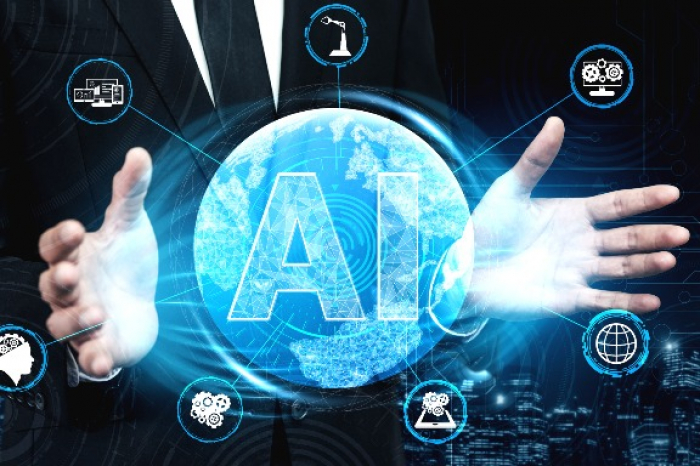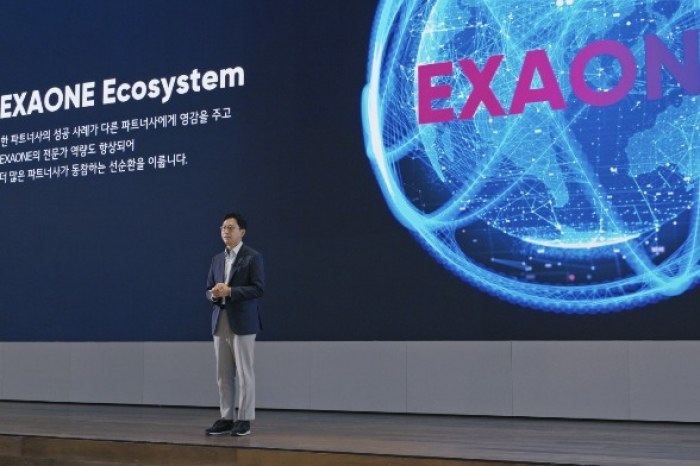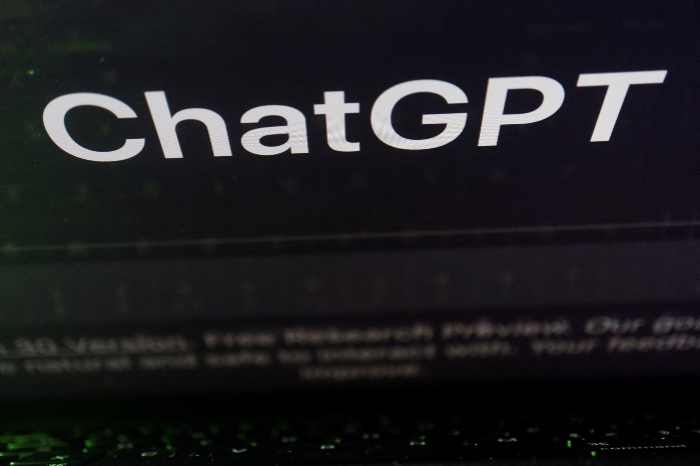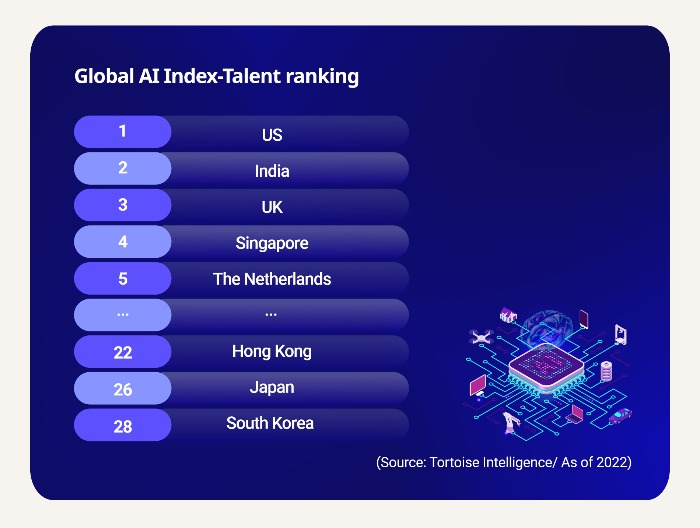Artificial intelligence
AI talent shortage poses threat to Korean AI tech development
The talent war in the AI technology sector is intensifying in S.Korea, causing AI specialists’ salaries to go through the roof
By Jun 23, 2023 (Gmt+09:00)
3
Min read
Most Read
LG Chem to sell water filter business to Glenwood PE for $692 million


Kyobo Life poised to buy Japan’s SBI Group-owned savings bank


KT&G eyes overseas M&A after rejecting activist fund's offer


StockX in merger talks with Naver’s online reseller Kream


Mirae Asset to be named Korea Post’s core real estate fund operator



Since the advent of the AI-powered chatbot sensation ChatGPT, the battle to win AI talent across companies large and small has intensified, threatening to cripple the development of AI technology in South Korea.
According to Korean career matching service provider Wanted Lab Inc. on Friday, AI-related jobs accounted for 39.9% of all of its software-related job postings as of May, up 6.1 percentage points since October 2022.
This suggests that demand for AI technology developers has grown significantly over the past six months, owing largely to the global generative AI hype created by OpenAI’s ChatGPT, which debuted globally in December last year.
The fierce race to recruit AI developers has swiftly hiked the salary cap of AI specialists.
According to the Digital Salary Survey 2023 by global recruitment consulting firm Robert Walters Group, the salary of research scientists in the machine learning and AI technology development field is forecast to nearly double to up to 300 million won ($230,000) from last year’s 170 million won in Korea.
Adding to the woes, even such handsome paychecks do not guarantee the recruitment of seasoned AI developers amid the aggravating AI talent shortage, leading some leading Korean conglomerates to turn their eyes to AI experts overseas.

LG Group and Hyundai Motor Group both set up booths at the Conference on Computer Vision and Pattern Recognition 2023, held in Vancouver, Canada, this week and vied for AI talent against global tech giants Google LLC, Apple Inc., and Meta Platforms Inc. that all took part in the conference as platinum-level sponsors.
The AI talent shortage has led most domestic tech giants such as Naver Corp. to turn toward a year-round hiring process to recruit AI developers.
AI TALENT WARS ESCALATE BETWEEN DIRECT RIVALS
Of those failing to bring abroad fresh talent, some got their hands on the senior AI experts of their direct rivals, stirring controversy in industry circles.
Naver recently warned in a statement that SK Telecom Co. must stop poaching its key AI staff, after the Korean telecom giant recruited Chung Suk-geun, former chief executive of Naver’s Clova CIC, as CEO of its US corporation early this year.
Naver is said to have been tipped about the intention of other Clova AI engineers joining Chung at SK Telecom.

The worsening AI talent shortage is also threatening the fate of AI startups short on funds.
Korea AI tech startup Upstage has been seeking to hire a local AI software engineer for four years but without success. Instead, it relies on former Amazon or Meta AI developers working from the US or Canada.
Extriber, an operator of the Tripstore Korean travel platform, last year succeeded in hiring a lead AI developer from Naver by paying the engineer more than its CEO.
Liner, a Korean AI-powered search engine platform developer, failed to find AI talent despite its wide-ranging search spanning more than 1,000 hours in the second quarter alone.
WEAKENING NATIONAL AI COMPETENCY
The AI talent shortage has taken a toll on Korean industries across the board.
According to a recent AI industry survey by the Software Policy & Research Institute, 81.7% of respondents said the AI talent shortage poses a major challenge to their business. By comparison, in 2020 only 48.8% thought so.

The CEO of one AI chatbot-developing startup, who declined to be named, confessed that the company is considering pivoting to another sector after more than half of its AI developers quit to join large conglomerates.
The AI talent shortage is expected to only worsen amid the surging demand for AI technology and services from companies across the industry spectrum.
The world’s top data center infrastructure company Equinix Inc. said in a recent report that 47% of Korean IT companies’ leaders are considering using AI in their business in the future.
That would further widen the gap between the supply and demand of AI specialists, accelerating the AI talent shortage.
“As the advent of generative AI technology like ChatGPT has heightened expectations that AI will further improve labor productivity, AI talent shortages are set to worsen across the board,” said Seo Jung-yun, a professor in the Natural Language Processing Lab of Sogang University, in Korea.
Write to Joo-Wan Kim and See-Eun Lee at kjwan@hankyung.com
Sookyung Seo edited this article.
More to Read
-
 Artificial intelligenceKT to invest $5.4 bn by 2027 to develop AI platforms
Artificial intelligenceKT to invest $5.4 bn by 2027 to develop AI platformsJun 21, 2023 (Gmt+09:00)
2 Min read -
 Korean chipmakersSamsung to apply AI, big data tech to entire chipmaking process
Korean chipmakersSamsung to apply AI, big data tech to entire chipmaking processJun 19, 2023 (Gmt+09:00)
3 Min read -
 Artificial intelligenceLG, FuriosaAI to jointly develop next-generation AI chip
Artificial intelligenceLG, FuriosaAI to jointly develop next-generation AI chipJun 07, 2023 (Gmt+09:00)
1 Min read -
 Korean startupsKorean unicorns winning talent war against global IBs
Korean startupsKorean unicorns winning talent war against global IBsAug 17, 2021 (Gmt+09:00)
5 Min read
Comment 0
LOG IN


